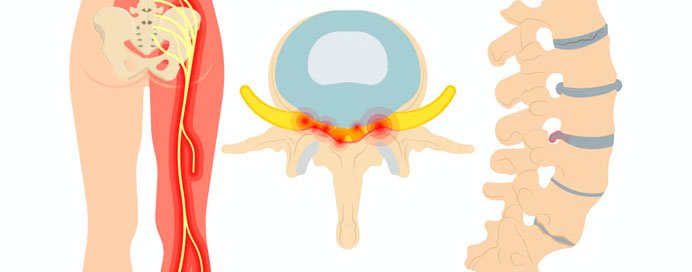Services / Dr. Ravi Bhanushali

Sciatica refers to pain that radiates along the path of the sciatic nerve, which is the longest nerve in the human body. The sciatic nerve runs from the lower back through the buttocks and down the back of each leg. Sciatica typically occurs when the sciatic nerve becomes compressed or irritated, leading to symptoms such as pain, numbness, tingling, or weakness in the lower back, buttocks, and legs.
Here’s an overview of sciatica:
Causes:
Symptoms:
Prognosis:
